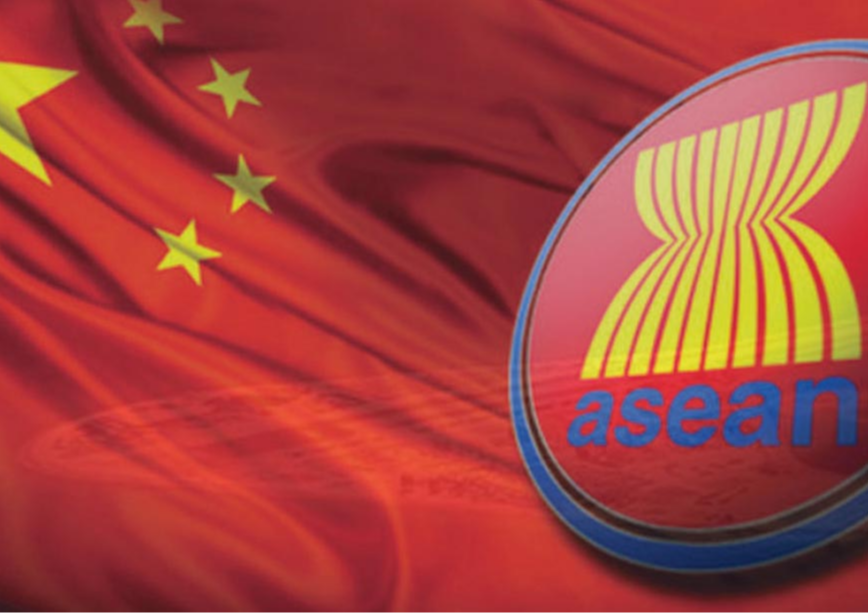-
CENTRES
Progammes & Centres
Location
The increasing incidents in the disputed waters of the South China Sea highlight the urgent need for ASEAN to negotiate with China to establish a Code of Conduct

The ongoing tussle between the Philippines and China in waters around the Second Thomas Shoal in the Spratly Islands where both countries have contested maritime claims has again put the ASEAN in a tough spot. Such clashes between the Philippines and China have been frequent in recent times e.g. the collision of the Chinese and the Filipino coast guard vessels in October 2023, and the incident in December 2023 where the Philippines accused the Chinese side of firing water cannons at its boats, including one carrying its military chief, and ramming others, causing serious engine damage. The ASEAN has been scrambling to negotiate a Code of Conduct (COC) with China since 2002 and these recent incidents in the contested waters between the Philippines and China present a bigger challenge for the ASEAN.
The ASEAN has been scrambling to negotiate a Code of Conduct (COC) with China since 2002 and these recent incidents in the contested waters between the Philippines and China present a bigger challenge for the ASEAN.
Witnessing the multiple clashes between the two countries, the ASEAN Foreign Ministers on 30 December 2023 released a statement on “Maintaining and Promoting Stability in the Maritime Sphere in Southeast Asia”. The statement mentioned how “the recent developments in the South China Sea may undermine peace, security, and stability in the region.” It further reiterated the need “to exercise self-restraint in the conduct of activities that would complicate or escalate disputes and affect peace and stability, avoid actions that may further complicate the situation and pursue peaceful resolution of disputes in accordance with the principles of international law, especially the UNCLOS”. This was the first such statement issued by the ASEAN and given the differences in opinion among the ASEAN member states with regards to the South China Sea issue, this can be seen as a positive step. During its chairmanship of the ASEAN, the Indonesian Foreign Ministry also proclaimed in July 2023 that the ASEAN and the People's Republic of China (PRC) have agreed on Guidelines to accelerate negotiations for the Code of Conduct in the South China Sea. These guidelines aim to speed up the process of negotiations. However, the details of these guidelines had not been made public.
The spokesperson of the Philippines Coast Guard accused the Chinese side of “carrying out dangerous maneuvers, and blocking the BRP Sindangan, a Philippine Coast Guard ship that was escorting Manila's resupply mission to the Second Thomas Shoal.”
Despite these statements and developments, the clash between the Philippines and China is only continuing to grow. The most recent clash between the Coast Guard vessels is a case in point. The spokesperson of the Philippines Coast Guard accused the Chinese side of “carrying out dangerous maneuvers, and blocking the BRP Sindangan, a Philippine Coast Guard ship that was escorting Manila's resupply mission to the Second Thomas Shoal.” Therefore, the question that arises is whether these measures and the ASEAN process in any way help the regional bloc deal with the ongoing crisis. Although the ASEAN Foreign Minister’s statement is a step in the right direction in terms of dialling down the debate and questions which are often posed about ASEAN’s unity for not being able to mitigate issues like the Myanmar crisis and the South China Sea crisis, at least the statement does reflect that the ASEAN has finally taken a collective position on the issue of upholding the principles of international law. Indeed, the statement does not call out any particular country for its actions, but the fact that such a statement was issued after the escalation of the clashes between the Philippines and China in the disputed waters, does reflect that China’s aggressive manoeuvres in the South China Sea have been hinted at. But there still is a need for the ASEAN to do more and at the same time also recognise that there are certain limitations in the ASEAN processes and mechanisms.
There is a need to give leeway to the claimant countries, which are at the receiving end of the Chinese aggressive encroachments to explore new means or alternative strategies to protect their own interests and these ‘new means and alternative strategies’ should not always be viewed as a hindrance to the ASEAN Way or as diminishing the ASEAN centrality.
One of the stumbling blocks for the ASEAN when it comes to taking a united stand on the South China Sea issue has been that the non-claimant countries, which have a cosy relationship with China, do not wish to take a critical stand against China as it does not impede their interests in any way. Indonesia, the former ASEAN chair, given its own growing concerns due to China’s more aggressive posturing in the Natuna Seas and also for the goal of making ASEAN appear more united to help restore its previous glory—Indonesia has always looked at itself as the primus inter pares within the ASEAN—paid a lot of attention maritime security issues during its chairmanship. Initiatives like the ASEAN naval exercise, the ASEAN Maritime Outlook, the hosting of the Expanded ASEAN Maritime Forum and the ASEAN Foreign Minister’s Statements for ensuring a stable maritime order are all reflective of this. Given that Laos, a non-claimant country is currently the ASEAN chair, it would make more sense for the ASEAN to provide this leeway to claimant countries to try and pursue alternative strategies that may help with the early conclusion of the COC in the long run and also help in maintaining a balance of power when it comes to dealing with a more powerful China.
One of the stumbling blocks for the ASEAN when it comes to taking a united stand on the South China Sea issue has been that the non-claimant countries, which have a cosy relationship with China, do not wish to take a critical stand against China as it does not impede their interests in any way.
There is a need to first endorse that the South China Sea issue does not only impact the claimant countries but also other stakeholders like the United States (US), Japan, Australia, India, and all other countries who are working to ensure a free, open and stable Indo-Pacific. Therefore, if the dialogue partners of the ASEAN like the US, Australia, Japan, and Australia are working with countries like the Philippines, and Vietnam towards a stronger defence partnership, undertaking joint patrols with the US, Australia, and now also with Japan, contributing towards the capacity building of these claimant countries through the supply of patrol boats and also calling out China for its illegal and aggressive actions in the South China Sea (both Australia and India have come out with statements condemning the Chinese actions in the Second Thomas Shoal), it should just be seen as an alternative strategy opted by these countries to protect their own interests. These should not be seen as a means to hinder the ASEAN way or its mechanisms and help feed the Chinese narrative.
Other stakeholders, like India, the US, Japan, and Australia among others, who are also the Dialogue Partners in the ASEAN and are a part of the East Asia Summit (EAS), another ASEAN-led mechanism should be encouraged to play a more substantial role on these platforms as well, besides working bilaterally with some claimant countries. One way could be initiating a maritime dialogue on the South China Sea issue at the EAS. Though there has been no all-out conflict in the South China Sea yet, a discussion at the level of the EAS on the enforcement of maritime law, if such a situation arises, is also worth exploring. Currently, China is proposing hosting a maritime dialogue with Australia. It has already hosted a maritime dialogue with the US in November 2023, so the ASEAN countries as well as its dialogue partners should encourage China to host these dialogues in a multilateral format on platforms like the EAS and the ASEAN Defence Ministers Meeting Plus.
There is a need to first endorse that the South China Sea issue does not only impact the claimant countries but also other stakeholders like the United States (US), Japan, Australia, India, and all other countries who are working to ensure a free, open and stable Indo-Pacific.
The COC negotiations have been ongoing for decades and the progress has been extremely slow, so alternate mechanisms or strategies undertaken bilaterally by some claimant countries with external players like the US, Japan, Australia, and India as well as on multilateral forums if they help complement and fasten the process of the COC deliberations should be taped into and not seen as a way to weaken or undermine the ASEAN process and ASEAN centrality.
Premesha Saha is a Fellow at the Observer Research Foundation
The views expressed above belong to the author(s). ORF research and analyses now available on Telegram! Click here to access our curated content — blogs, longforms and interviews.

Premesha Saha was a Fellow with ORF’s Strategic Studies Programme. Her research focuses on Southeast Asia, East Asia, Oceania and the emerging dynamics of the ...
Read More +